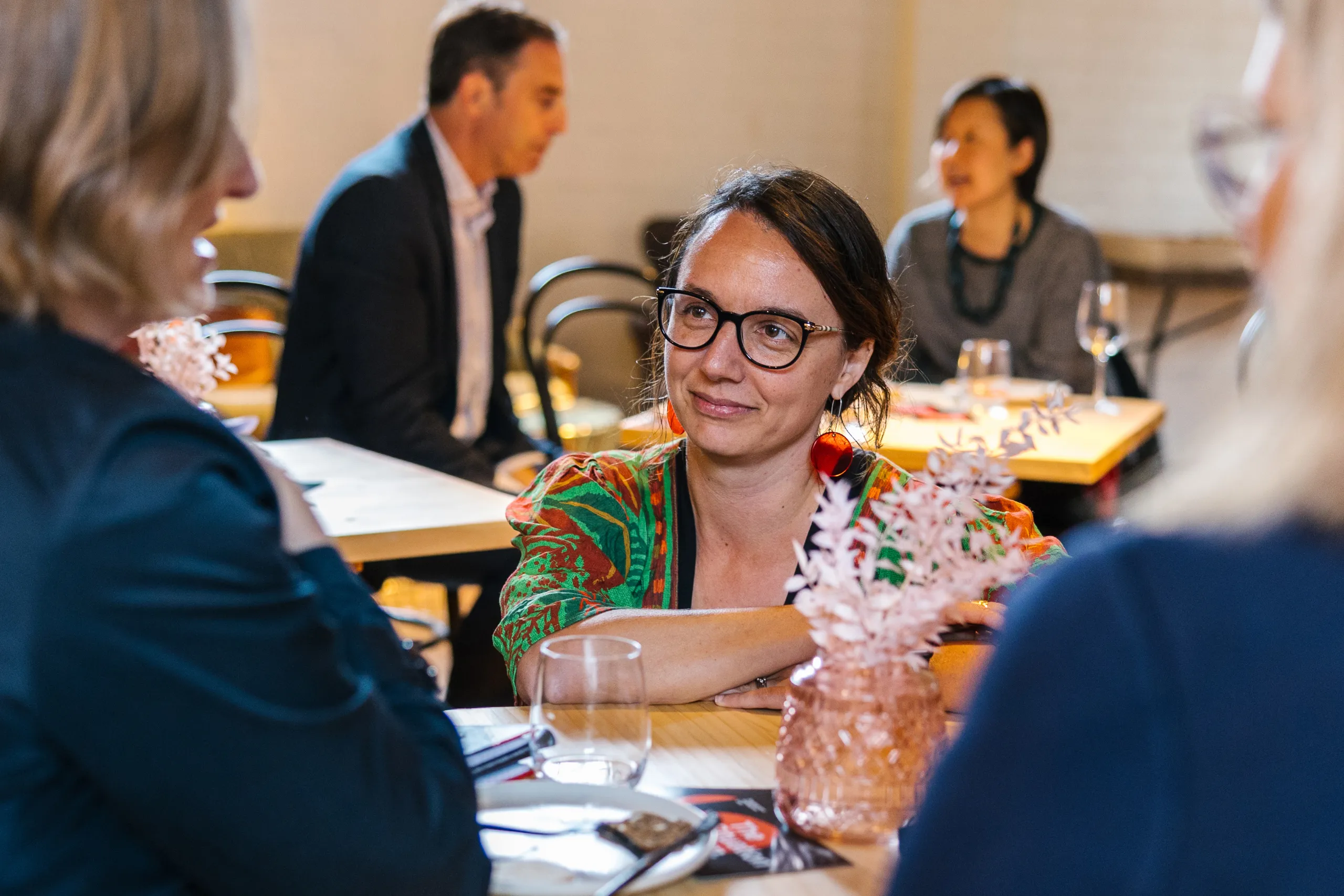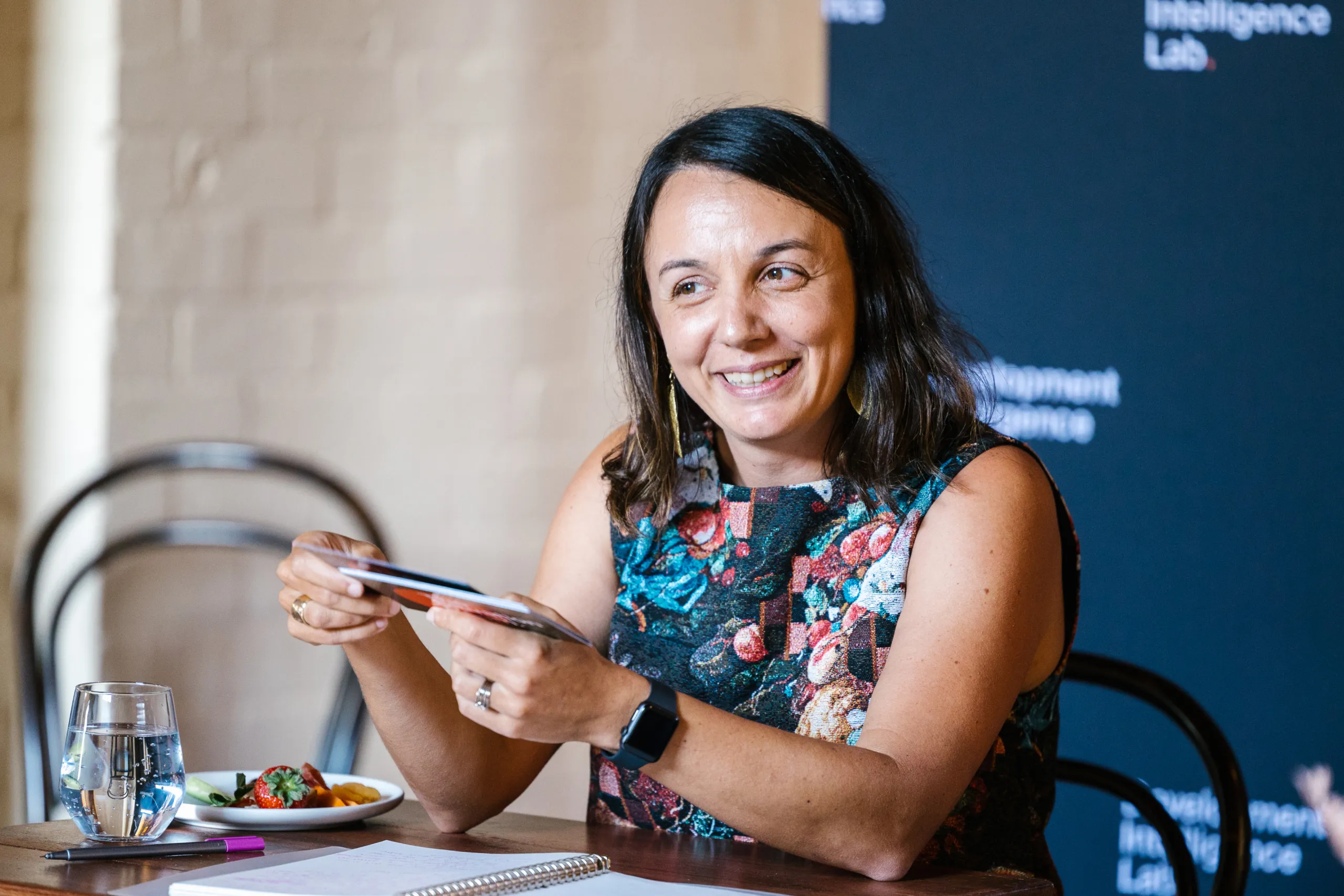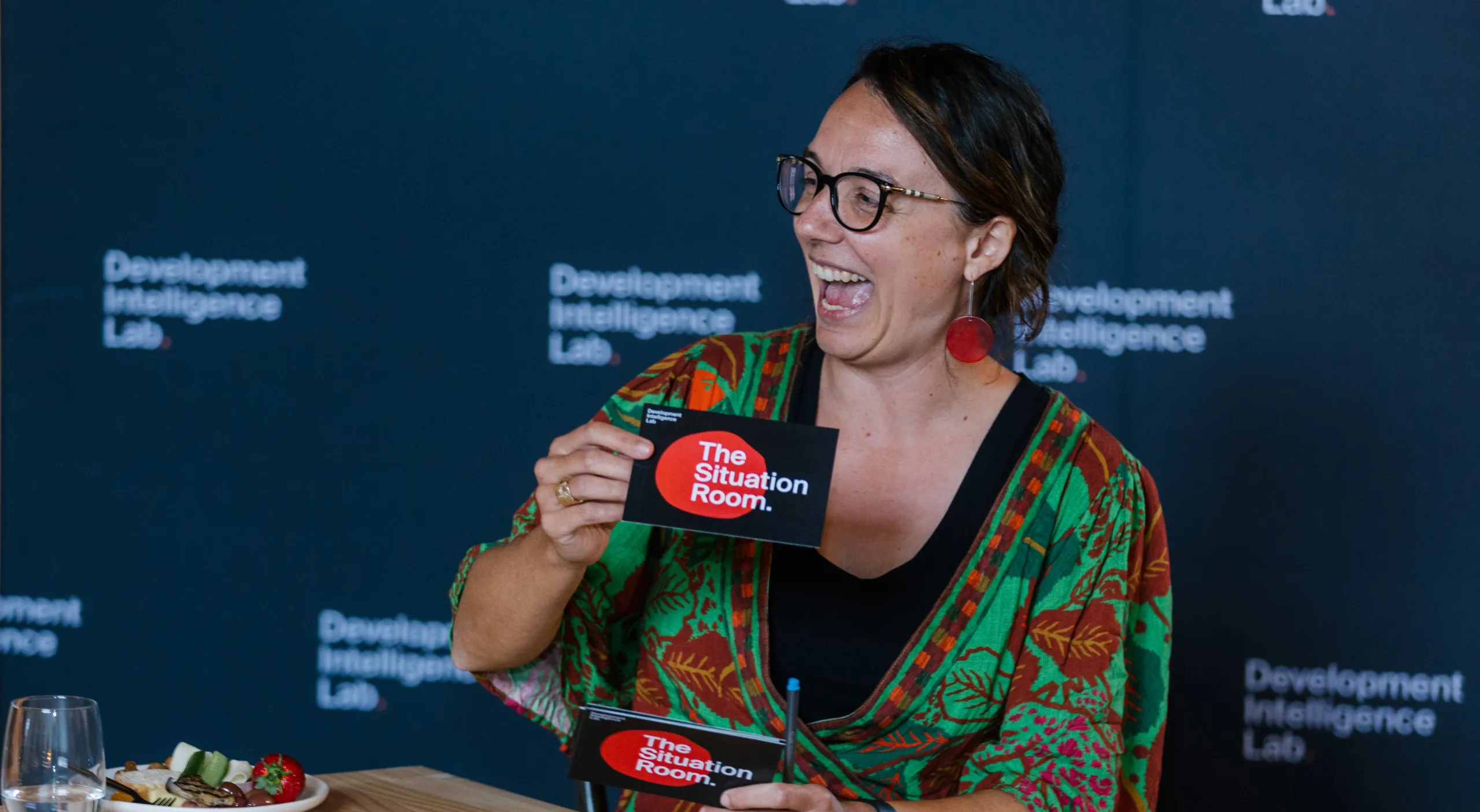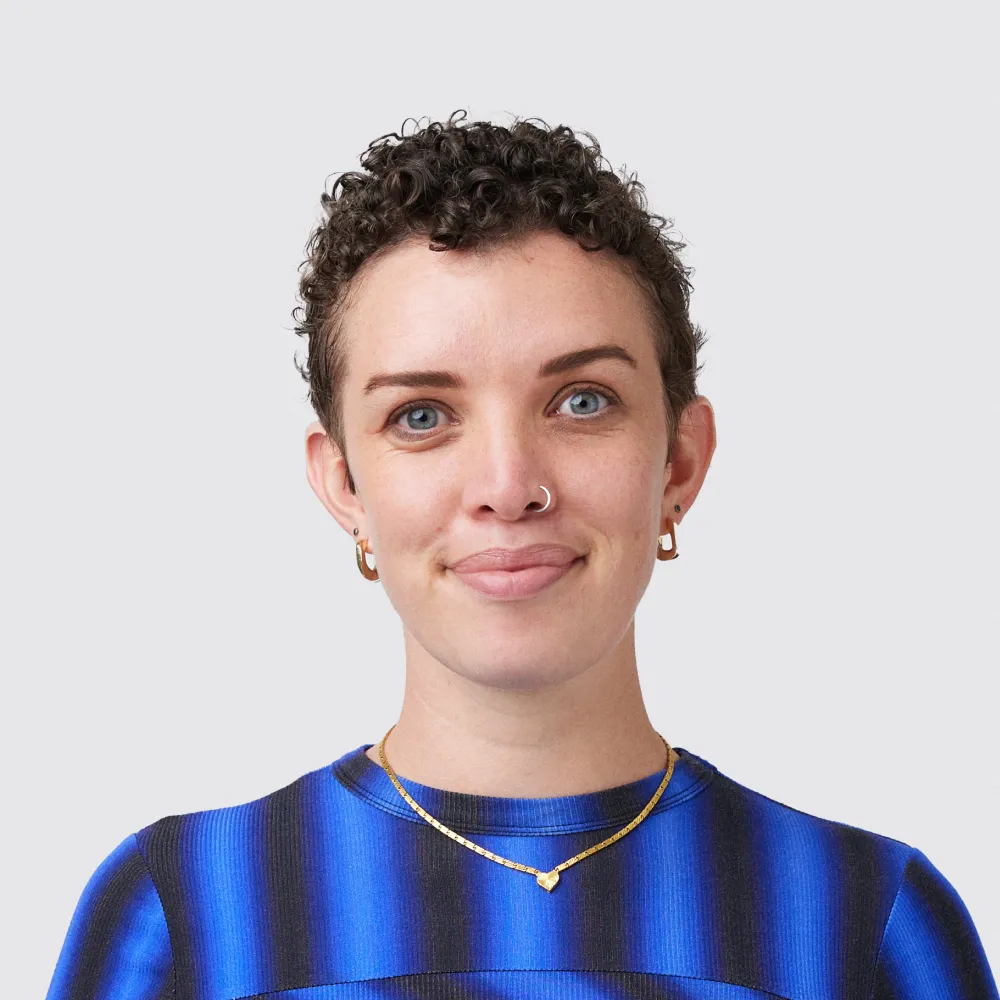What happens when you apply a human-centred design approach to Australian foreign policy? We chat with Bridi Rice, Founder and CEO of the Development Intelligence Lab, to find out.

In conversation
When somebody asks you what you do, how do you explain it?
Honestly, I can’t. But my colleague describes it as “you curate brave spaces for the Indo-Pacific’s foreign policy leaders to ask the tough questions, mull over the most wicked of problems and somehow leave feeling a little more inspired to do something practical about the sustainability of our humanity and planet.”
I guess that means I’m really doing it — I look after Australia’s newest development policy think tank, the Development Intelligence Lab. We deliver the best insights and ideas (intelligence) to the region’s top development decision-makers so that they can make the sorts of decisions that will matter to future generations.
In practice – that means I run an International Development Lab – part research organisation, part publications house. What sets us apart is our human centred-design approach to Australian foreign policy making. We are an audience-first analysis organisation — we care first and foremost about how what we produce helps leaders make better decisions.
Why do you do what you do? Tell us about the fire inside that's driving you to do this.
I had a dream. Seriously. I had a dream in 1999 when I was 15 where Kofe Annan, Nelson Mandela and Jose Ramos Horta were playing tennis in a field (I’m pretty sure it was the Gladiator field of wheat). They were brutal. They told me I better bloody do something good with my education.
The backstory is that I’m one of the first people in my family to finish university and I have teachers, colleagues and family who have all bent over backwards to help me along the way. When faced with a choice between becoming a corporate lawyer or a development professional, it was pretty obvious where my calling was. I then discovered that whilst I love working abroad and have had the honour of working on some of the most exciting and high-impact development projects, I’m also fairly nifty around a board table or speaking to Australian power brokers.
So I use my understanding of development and the region, to bridge the gap between Canberra-policy makers and the decisions they make which ultimately impact people living in communities in the Indo-Pacific. That’s my happy place — making complex things feel achievable and hopefully improving a few sustainable lives whilst we’re at it.
That’s my happy place — making complex things feel achievable and hopefully improving a few sustainable lives whilst we’re at it.
Bridi Rice

What project are you most proud of? Or can you tell us about something that you're working on at the moment?
Definitely our Pulse Check . From a wee idea in October to a fully-fledged disruption of how Australia thinks and does its Development Policy, we launched it last week (full analysis credits to the Lab’s Madeleine Flint).
We found the region’s top 100+ experts, and used a combination of war gaming theory, gambling theory and good ole fashioned focus groups to put these experts in the shoes of Government policy makers, voting on how they would write and implement Australia’s future approach to sustainable development in the Indo-Pacific.
So far it’s had super pick up in the region and at home in Parliament — and we can’t wait to incubate the next iteration of it.
What's your dream project brief for making a positive impact in the world?
My best briefs always come from my staff or the group of development stakeholders who contribute to the work of the Lab. They generally start with “so I had this random idea…”. That’s generally followed by a process of venting frustrations and a series of coffees in front of a sketch book.
I’d love it if the next brief was: “So I had this random idea: how can you deploy AI to improve policy analysis and forecasting? I’m so frustrated by how hard and slow it is for our Government to listen to the region, weigh up competing perspectives and make long-term strategic decisions that result in sustainable development outcomes. I want to know what the region’s facing. Can you check it out for us?”
What needs to change today to be able to do that tomorrow?
Not too much. Watch this space 😊

